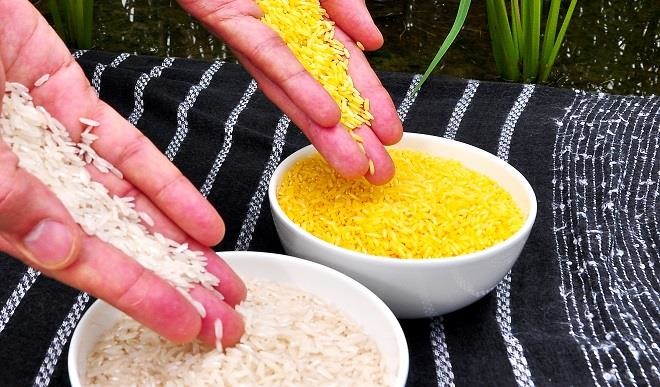
First, and foremost, the biggest promoter of genetically modified organisms worldwide is the US based Corporation called Monsanto, and the US government. Their interests are intertwined, with regard to GMO. Monsanto is a company that specialises in agricultural products, including genetically modified seeds, and plants. Monsanto also produces herbicides and pesticides to support the growth of their genetically modified plants. Roundup is the most highly promoted and marketed herbicide; it is manufactured by Monsanto to go with its GM seeds, and contains glyphosate.
The Monsanto strategy is to tie-in the farmers who bought their seeds, as they would also have to buy Roundup; when a farmer harvested his crops, he would not be allowed to keep seeds for next year’s planting season, he would have to buy new seeds and herbicide from Monsanto.
Previously, Monsanto had engineered the seeds to self-destruct, once the plants have been harvested, through a genetic trick called “killer gene”. Monsanto abandoned the technology following a lot of outcry, but it didn’t stop them from holding proprietorship rights to the farmer’s seeds after harvest. If a farmer were to replant, in violation of the terms, Monsanto would sue the farmer, for using their seeds, even though those seeds came from his harvests.
Like all corporations, Monsanto’s primary concern is its bottom-line, and it would do anything to ensure that, including bullying.
This strategy will systematically replace the local seed and crops varieties with the GM versions in any community that adopted GM seeds and crops; this is a clear threat to both farmer and food security in the country that blindly adopts GMO; GM seeds and crops are intellectual property and are patented, unlike the seeds that have been developed for humanity over millennia.
It is an outrage that laws were established to allow these corporations usurp our common wealth bequeath from human endeavour over millennia. Further, like most large corporations, it will not accept any view that challenges its claims on the utility and safety of its products.
A lesson can be gleaned from the Tobacco companies; despite their own in-house assessments pointing to the danger of nicotine, they kept on promoting cigarettes as safe, until the US government finally waded in when the casualties were too many to ignore.
In a country, like most African countries, with no indigenous know-how to develop the technology, very soon the GM seeds will displace their traditional varieties with catastrophic consequences; Monsanto will then own all the seeds being used to grow plants and crops by the farmers.
This is a present danger to farmers and society at large, because when Monsanto decides not to supply the farmers, or the costs became exorbitant, the people will be hard pressed to find seeds to plant. Already many traditional and local seeds varieties are disappearing, making ways for foreign and GMO varieties. Why should society allow these merchants deprive the rest of us the right to reject products that are solely being marketed to enrich foreign corporations?
The other element in the GMO debate, that isn’t clear to the public, is that most of the protagonists in the West, and especially their counterparts in third-world countries, are those who either have direct link with Monsanto, or indirectly through research funding by the Corporation.
One of the most strident arguments being proposed in support of GMO in African countries is the claim that the current low yielding crops will not be able to feed Africa’s growing population. What they aren’t telling the public is that, the rest of the world had been feeding based on seeds and farming methods that didn’t involve the use of GMO; that per acreage yield for the same crops is almost 3 times higher in western nations compared to Africa; that the reasons for this disparity isn’t GMO, but inefficient farming methods, lack of storage, and mechanisation.
The fact is: Africa’s crops yield will be more than tripled, if it adopts modern farming techniques, with improved infrastructure and mechanisation. Africa needs to improve its farm yields, and to ensure that food is available and accessible to everyone, but it does not need GMO to feed its people; that’s the truth! One other thing the Monsanto merchants are not telling the public is that, even in the US, only very few crops have been approved for human consumption.
The majority of GM crops that were approved were those used as animal feeds. The GM Salmon is the first major food item approved for human consumption. However, it is pertinent to note that it took several years before it was approved; this is despite the fact that the modification in the fish was of the type that enhances endogenous genes, as opposed to introducing exogenous genes from a different species. This distinction is very critical. It is one thing to introduce a bacterial or viral gene into cottonseeds, and quite another to introduce the same thing into aubergine or tomatoes.
Finally, the claim by the protagonists that GM foods are safe to eat is utter nonsense. There hasn’t been many GM foods approved for human consumption to make that claim, and the few that have been approved have not been in the market long enough. Besides, people in the countries where they have been approved are demanding that the GM foods be labelled so they could make a choice.
However, as would be expected, Monsanto and their merchants are fighting tooth and nail to stop any legislation that will require labelling of GM products. They don’t seem to see the irony; on one hand, they are claiming that GM foods are safe for human consumption, and on the other hand, they don’t want people to know which foods are based on GM. If they truly believed their claims, they should be demanding for GM foods to be labelled so people can actually make their judgment.
If consumers like a product, there is no amount of scaremongering that will stop them from buying it. This just goes to show that the Monsanto bandwagon is making claims on the benefits of GM foods only based on subterfuge and mendacity.
Dr. Az-Zubair is a lecturer in Molecular Bioology & Microbiology, at Cambridge University, UK

 Join Daily Trust WhatsApp Community For Quick Access To News and Happenings Around You.
Join Daily Trust WhatsApp Community For Quick Access To News and Happenings Around You.

